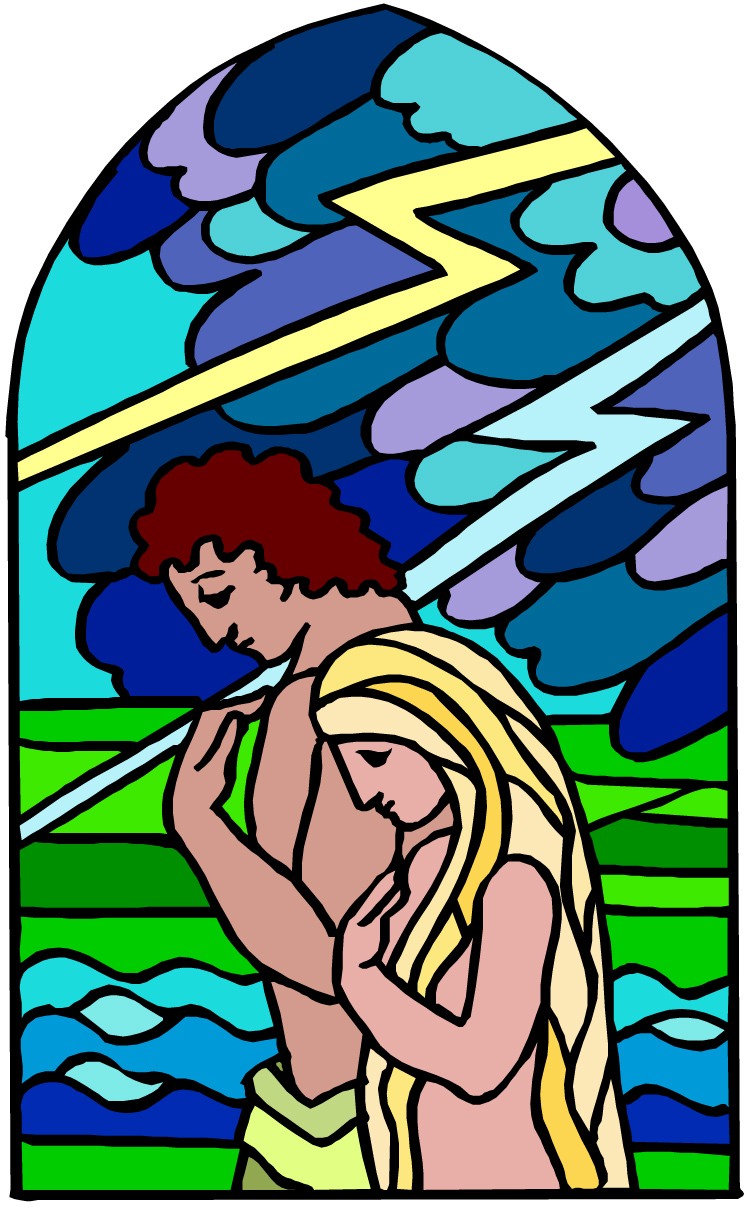Tag Archives: Adam and Eve
Are You Feeding from the Tree of Knowledge (through your “smart phone”)?
Are you addicted to your smart phone (and computer)? Think about it for a minute. Maybe, in reality, you’re addicted to the tree of the knowledge of good and evil.
Everywhere I go I see it…and so do you. People walking down sidewalks, smart phone in hand, hunched over their device. Just the other day, I saw four mom’s crossing a busy street on their way to pick up their kids from school. The eyes of three of the four were glued to their smart phones. They didn’t even look up see if traffic was coming!
“Smart phone” may be the oxymoronic label of the day…don’t you think?
At our finger tips, we have all the knowledge of the world—both good and evil. Sounds like the biblical tree of the knowledge of good and evil to me.
Remember the tree in the Garden of Eden that Elohim told Adam and Eve not to eat from? The same tree that the serpent hid in and lured the first humans into eating from?
We don’t know what kind of fruit it was. The Bible doesn’t tell us. Tradition tells us, however, that it was an apple. Hmm. Apple. The most popular “smart” phone on the planet has as its logo an apple with a bite out of it. Now connect the dots.
Look, I love my Apple I-Phone, my Apple I-Pad and my Apple computer. I don’t exactly live in a cave and grunt my way through life. But do these things master us or do we master them? Do you spend time with your electronic devices that you should be spending with YHVH? Are you spending more time feeding from the tree of knowledge or the tree of life?
I know, no one reading this is guilty of the concerns I’m positing. Each of us has a myriad justifications why the shoe doesn’t fit me. We’re all right in our own eyes. But what does YHVH think about it? We can’t fool him. He sees through our human machinations and excuses.
When Adam and Eve disobeyed YHVH and ate from the tree of knowledge instead of being faithful to his instructions in righteousness, they sinned. This was their first step on the proverbial downward spiral, slippery slope away from the Creator. Do you really think the devil has stopped attempting to deceive humans away from Elohim? Do you really think that in these modern times he’s going to take you to an actual tree that is labeled “Tree of Knowledge of Good and Evil”? Get real. He’s smarter than that. But I can’t think of anything that fits the bill better than a beautiful device you can hold in your hand, that you can get in any color you want, and that has an apple logo on it (or whatever logo it may be) that more qualifies.
When Adam and Eve ate from the wrong tree, they fell into idolatry. Anything we put above Elohim becomes an idol to us. When our phone or laptop becomes more important to us than our Bible—there’s a problem.
What’s the truth about “original sin”?
Romans 5:12–19, It is difficult for our minds to comprehend the concept that as death came to all men because of the sin of one man (Adam), so life can come to man through the righteousness of one man (Yeshua). In these verses, Paul attempts to logically and legally lay out this concept to his readers in a way that they can understand.
Let us first retranslate verse 12 by using biblical definitions for the terms Paul uses in this verse:
Wherefore, as by one man sin [i.e., Torahlessness — See 1 John 3:4] entered into the world, and death [separation from communion or relationship with YHVH because of sin; i.e., Torahlessness]; even so death [separation from YHVH] passed upon all men, for all have sinned [violated the Torah; i.e., the righteous instructions, teachings, precepts of YHVH as outlined in the Pentateuch or law of Moses].
We know from the Scriptures that the Torah (the righteous instructions, teachings and precepts of YHVH Elohim) not only existed prior to Moses, but prior to the creation of the world (Rom 7:14; Ps 119:142,151; Gen 26:5; John 1:1–2, 14; Gen 1:3 cp. 14). Yet in verse 13 Paul states (in the KJV), “For until the [Torah] sin was in the world; but sin is not imputed where there is no [Torah].” The CJB renders this verse as follows: “Sin was indeed present in the world before the Torah was given, but sin is not counted as such when there is no Torah.” Joseph Shulam rightly states in his commentary on this text that though the Torah existed prior to Mount Sinai, the Continue reading
Where Are YOU?
Genesis 3:9–13, Where are you? Elohim asks Adam and Eve direct and specific questions, but instead of taking personal responsibility and answering the questions, they defend themselves, make excuses, justify themselves, blame shift, and accuse others including blaming Elohim. When confronted with their sin, humans have been doing this ever since — defending self and ego at all expenses. This is the result of the taint of sin and this behavior has been passed on from one generation to the next. The Spirit-led person must counter this proclivity of the soul to justify, excuse and obfuscate one’s sin.
Furthermore, when YHVH asked the first humans where they were after they had sinned, he wasn’t asking them where they were physically. Being obniscient, he knew this already. Instead, he was asking them them, “Where are you spiritually in your relationship with me in regards to obedience to the instructions in righteousness I gave you to obey?” This is the same questions the Creator is still asking men to this day.
Gardening—Man’s Noblest, Elohim Ordained Profession
Genesis 2:15, Tend/dress and keep it. Tend is the Hebrew word avad meaning “to work or serve.” Being a gardener was Adam’s occupation. Yeshua was the second Adam. After Yeshua’s resurrection, interestingly, he was mistaken as the gardener (John 20:15).
The Torah teaches sustainable living and stewardship of the earth. The terms sustainability or sustainable living are currently fad concepts that are bandied about by those seeking to be politically correct—whatever that is supposed to mean. Wikipedia, the online encyclopedia, defines sustainability as follows:
Sustainability is the capacity to endure. For humans, sustainability is the long-term maintenance of responsibility, which has environmental, economic, and social dimensions, and encompasses the concept of stewardship, the responsible management of resource use. In ecology, sustainability describes how biological systems remain diverse and productive over time, a necessary precondition for the well-being of humans and other organisms.
As the writer of the Book of Ecclesiastes said, there is nothing new under the sun. In the beginning, Elohim placed man in the idyllic paradise called the Garden of Eden instructing him “to tend” (serve, work, till, dress) and “to keep” (guard, observe, protect) the garden (Gen 2:15). Man was commanded to become the steward of what Elohim had created—to preserve, maintain and to care for it.
To this day, YHVH has never rescinded these instructions to man even though modern environmentalists and conservationists may think they originated the idea of responsible stewardship of the environment. Long before Rosseau, Thoreau, the Continue reading




